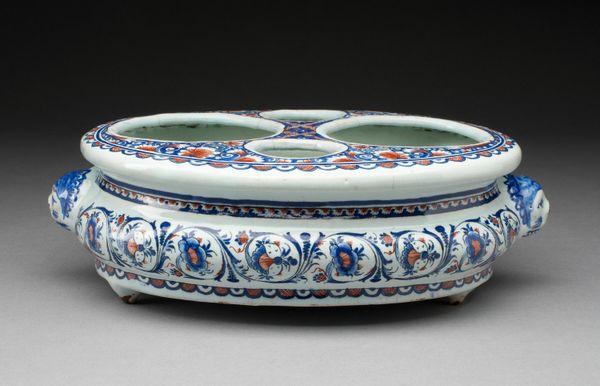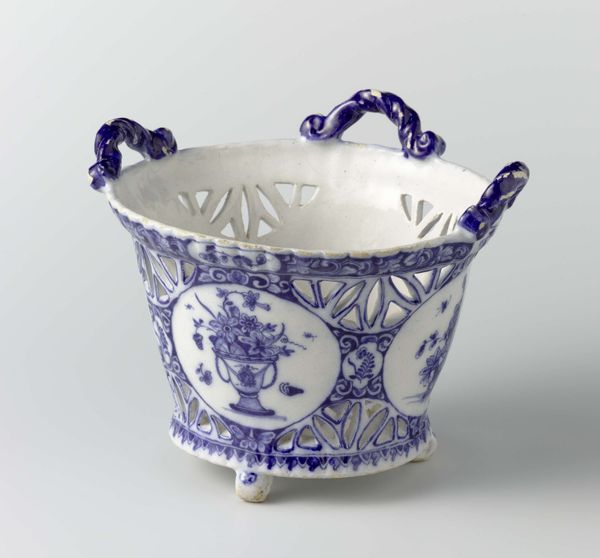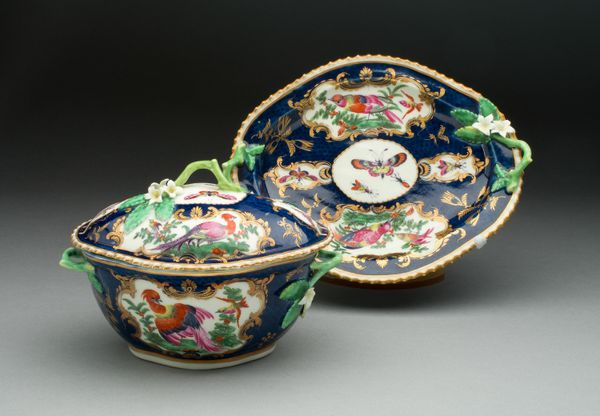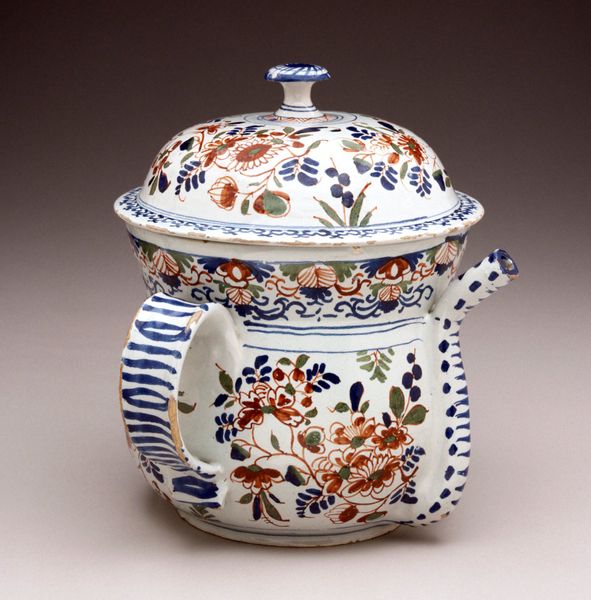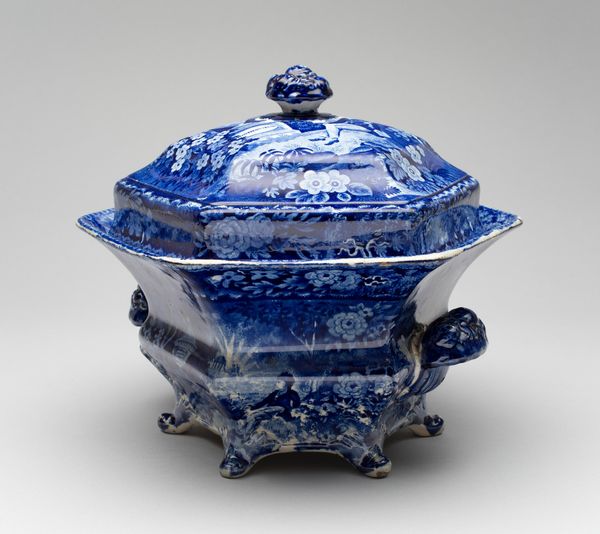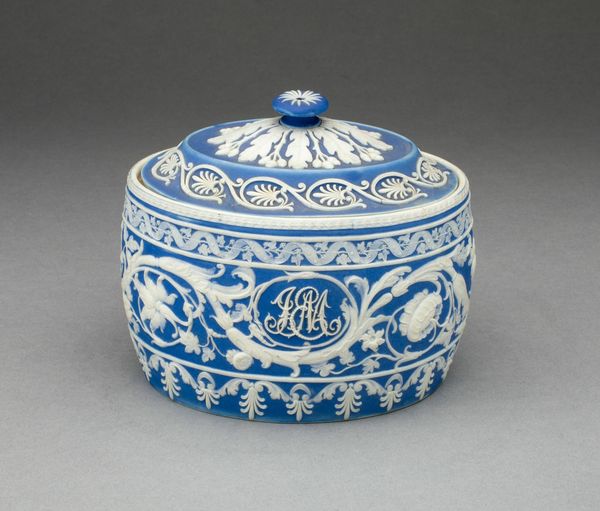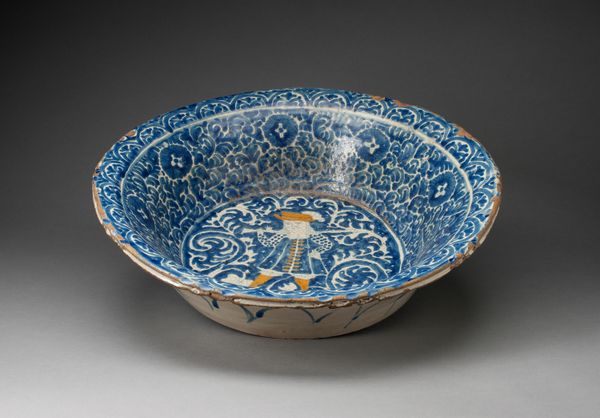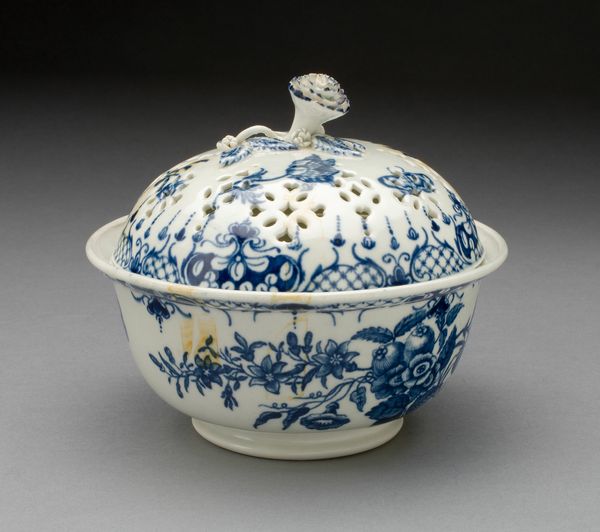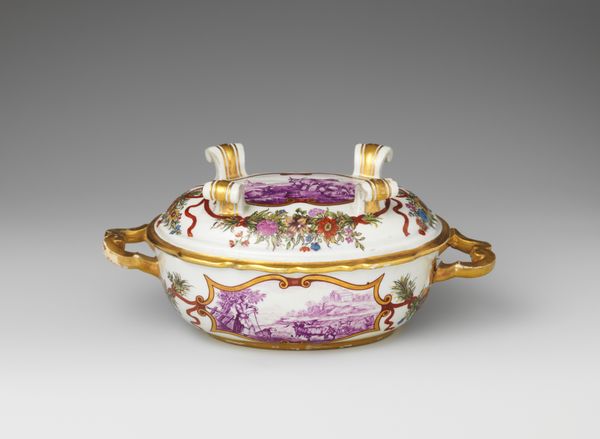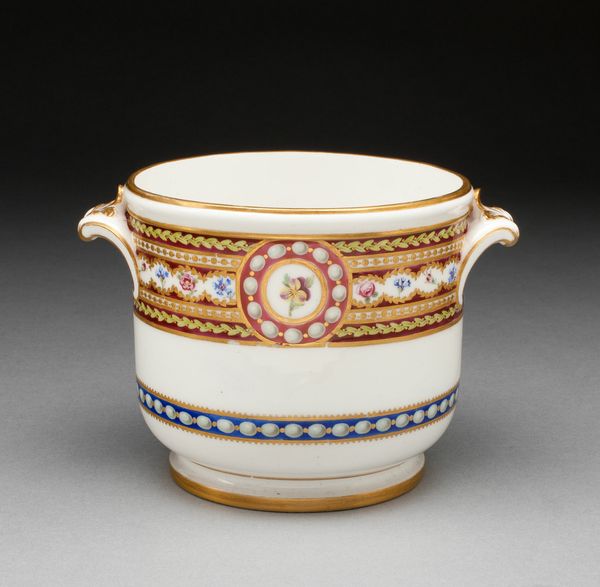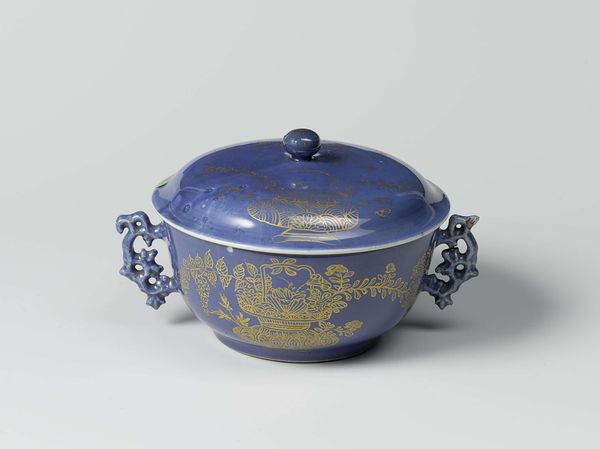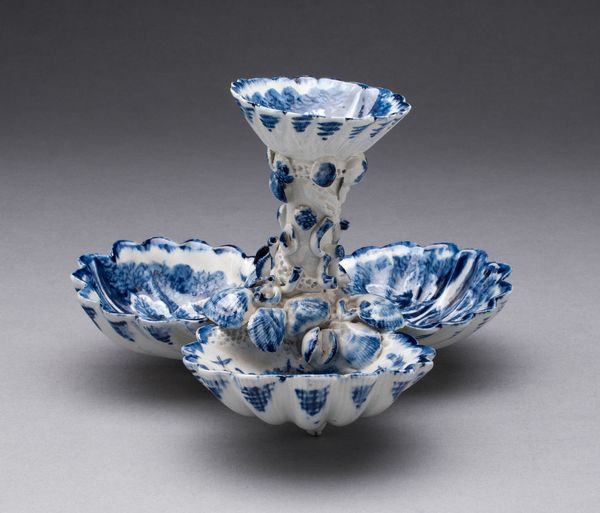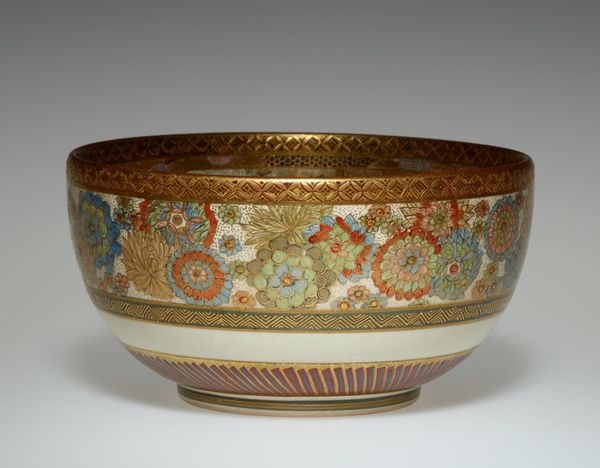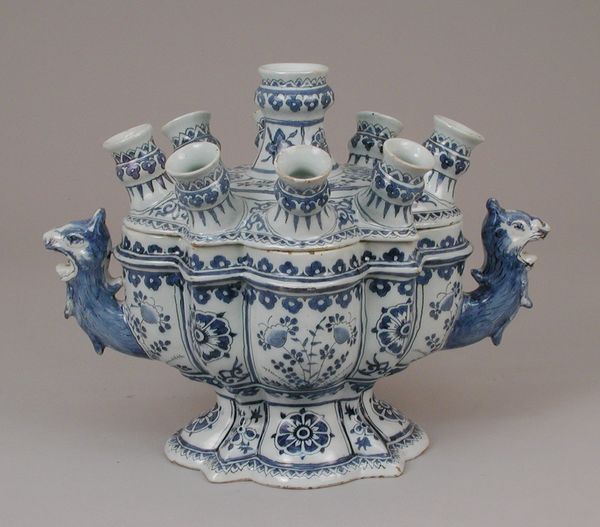
ceramic, sculpture
#
baroque
#
ceramic
#
sculpture
#
decorative-art
Dimensions: 12 3/4 x 29 1/2 x 18 3/4 in. (32.39 x 74.93 x 47.63 cm)
Copyright: Public Domain
Editor: Here we have a wine cistern, a ceramic sculpture made in the late 17th or early 18th century. The intense cobalt blue is so striking, and I'm immediately drawn to the sculptural figures serving as handles. What do you see when you look at this piece? Curator: I’m struck by the interplay of form and surface. Notice how the piece is structured in distinct registers: the base with its repeating arched motif, the middle section filled with dense floral patterns, and the upper rim adorned with stylized figures. It's a feast for the eyes in terms of layering. Do you perceive how the use of color enhances this structure? Editor: Yes, the contrasting dark blue against the white floral designs really makes each section pop! The use of perspective and depth is really interesting, especially within the intricate patterns. How does the shape inform your interpretation? Curator: The ovoid form itself functions as a canvas, permitting an elaborate exploration of surface decoration. Note that it isn’t merely a container. Its essence lies in the tension created between the structural contours and the almost unrestrained ornamentation. It serves as a study in Baroque exuberance. Editor: That makes sense! So the functionality almost takes a backseat to the aesthetics? I find it interesting how the purely decorative elements create so much meaning on their own. Curator: Precisely. The value resides in the aesthetic experience. It allows us to focus on its intricate and symbolic layering without being encumbered by its functional role. Editor: It's amazing how focusing on just the structure and visuals unlocks a deeper appreciation. I wouldn't have thought of it that way initially. Curator: Indeed. Analyzing its components and their relationships provides new perspectives and richer understandings of its purpose and value.
Comments
minneapolisinstituteofart about 2 years ago
⋮
Similar to the large silver cistern at the end of this corridor, this object was originally made to hold cold water for chilling bottles of wine. It is decorated with classic winged caraytids and palmettes, as well as Asian-inspired designs of birds and flowers. The cistern is composed of faience, the French term for tin-glazed earthenware, which was introduced to Europe from the East during the Middle Ages and was produced in France by the late-16th century. The faience industry thrived during the 17th and 18th centuries in several French cities, such as Strasbourg and Nevers, and provided a less expensive though highly decorative alternative to fine porcelain.
Join the conversation
Join millions of artists and users on Artera today and experience the ultimate creative platform.
